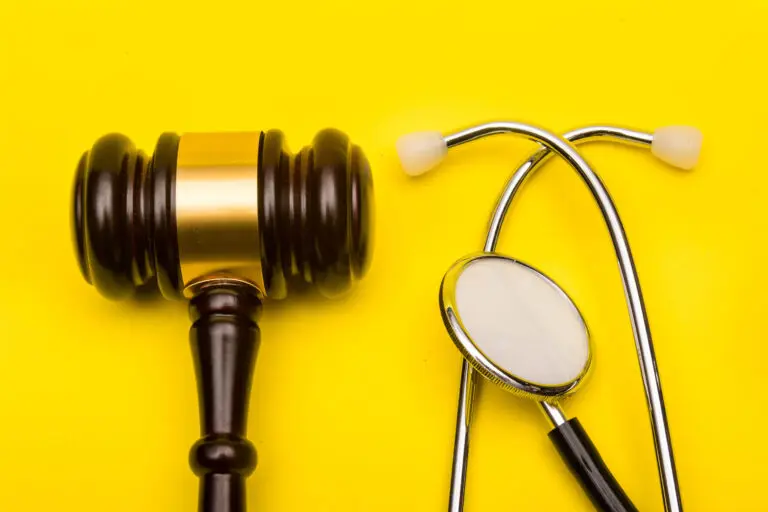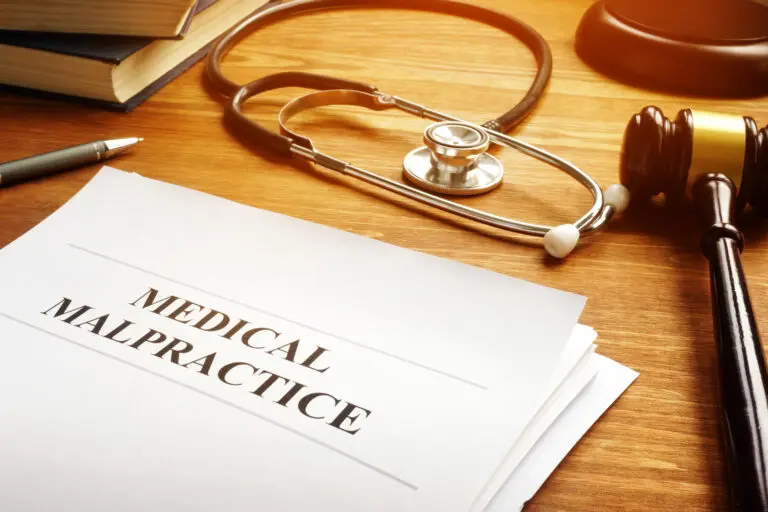Facing a DUI (Driving Under the Influence) charge in Florida can be a life-changing event with severe consequences. Understanding the DUI court process in Florida is vital for those accused of driving under the influence. It allows them to navigate the legal system effectively, prepare a strong defense, and make informed decisions about their case. As a Florida DUI lawyer, my goal is to explain each step of the DUI legal process in detail, from arrest through trial and sentencing, to help individuals facing charges know what to expect and how to protect their rights.
Overview of Florida DUI Laws
Florida DUI laws are some of the strictest in the nation. Florida defines DUI as driving or being in actual physical control of a vehicle while under the influence of alcohol or drugs, where the individual’s Blood Alcohol Content (BAC) es 0.08% or higher, or if they are impaired to the extent that their normal faculties are compromised.
Florida has implied consent laws, which means that by driving in the state, drivers automatically agree to submit to chemical testing (such as breathalyzer tests) if an officer suspects DUI. Refusal to take these tests can result in automatic penalties, including a driver’s license suspension, regardless of the outcome of the DUI case.
The DUI Arrest in Florida
The DUI process begins when a law enforcement officer suspects that a driver is under the influence of alcohol or drugs. This suspicion can arise during a traffic stop, at a DUI checkpoint, or following an accident.
Traffic Stop and Initial Investigation
A traffic stop occurs when an officer observes signs of impaired driving, such as swerving, speeding, or failing to obey traffic laws. Once stopped, the officer will assess the driver for signs of intoxication, such as slurred speech, bloodshot eyes, and the smell of alcohol. The officer may then ask the driver to perform pruebas de alcoholemia sobre el terreno.
Field Sobriety and Breathalyzer Tests
En field sobriety test is a series of physical and cognitive tasks, such as walking in a straight line or standing on one leg, used by officers to determine whether a driver is impaired. These tests are highly subjective and can be affected by factors such as medical conditions, fatigue, or anxiety, making them unreliable indicators of intoxication. If the officer believes the driver is impaired, they will typically administer a prueba de alcoholemia to measure BAC.
Refusing a breathalyzer test in Florida is not without consequence. Under the state’s implied consent law, refusing the test results in an automatic driver’s license suspension—one year for the first refusal and 18 months for subsequent refusals. Additionally, the refusal can be used as evidence against the driver in court.
The Arrest and Booking Process
If the officer believes the driver is impaired based on the results of the field sobriety and breathalyzer tests, the driver will be arrested for DUI. After the arrest, the driver is taken to a local detention facility for booking. During the booking process, the driver’s fingerprints and photographs are taken, and they are held in custody until they post bail or are released on their own recognizance. The DUI arrest is just the beginning of the legal process, and it’s crucial to consult a Florida DUI lawyer as soon as possible to begin preparing for the next steps.
The Arraignment
The next phase of the DUI court process is the comparecencia, where the defendant is formally charged with DUI and enters a plea of guilty, not guilty, or no contest. The arraignment typically takes place within a few weeks of the arrest and is the defendant’s first appearance in court.
Entering a Plea
At the arraignment, the defendant will be asked to enter one of the following pleas:
- Not Guilty: By pleading not guilty, the defendant asserts that they did not commit the crime. Pleading not guilty allows the defense lawyer to investigate the case, challenge the evidence, and build a defense strategy. Even if the defendant believes they are guilty, most DUI defense attorneys recommend pleading not guilty at the arraignment to keep legal options open.
- Guilty: A guilty plea results in the immediate acceptance of responsibility for the charges. The court will then move directly to sentencing, and the defendant will face the full range of DUI penalties.
- No Contest: A no contest plea means the defendant does not admit guilt but accepts the penalties associated with a guilty plea. This plea is often used when the defendant wants to avoid civil liability in any related lawsuits, such as personal injury claims.
Understanding the Consequences
The decision to plead guilty or no contest at the arraignment should not be taken lightly, as it can lead to immediate and severe consequences. Penalties for DUI in Florida include fines, probation, community service, and potentially jail time. Defendants should consult with a Florida DUI lawyer before making any decisions about their plea to fully understand the implications and potential defenses available.
Pretrial Motions and Hearings
Once the arraignment is completed, the case moves into the pretrial phase. This is where much of the legal groundwork is laid, and both the prosecution and defense may file various motions to shape the case.
Motion to Suppress Evidence
One of the most common pretrial motions in Casos de DUI es el motion to suppress evidence. This motion is filed by the defense to argue that certain evidence should be excluded from the trial because it was obtained illegally. For example, if the officer did not have causa probable to stop the driver, or if the breathalyzer test was improperly administered, the defense may ask the court to suppress that evidence. If the judge agrees to suppress key evidence, it can significantly weaken the prosecution’s case, possibly leading to a dismissal of charges.
The Discovery Process
During the discovery phase, both sides exchange evidence related to the case. The prosecution will provide the defense with police reports, breathalyzer results, dashcam footage, and any witness statements. The defense can use this evidence to identify weaknesses in the prosecution’s case and prepare a defense strategy. Discovery is a critical part of the pretrial process, as it allows both sides to fully understand the facts of the case and avoid surprises at trial.
Plea Bargaining and Diversion Programs
Many DUI cases in Florida are resolved without going to trial. Plea bargaining is a common way to resolve DUI cases, as it allows the defendant to accept responsibility for a lesser charge in exchange for reduced penalties. In some cases, defendants may also be eligible for diversion programs that allow them to avoid a formal conviction by completing certain requirements.
Plea Bargains
In a plea bargain, the defense and prosecution negotiate an agreement where the defendant pleads guilty to a reduced charge, such as reckless driving. This allows the defendant to avoid the harshest penalties of a DUI conviction while still accepting responsibility for their actions. A plea bargain can also result in a shorter license suspension, lower fines, and the elimination of mandatory jail time. Plea bargains are often recommended for first-time offenders or cases where the evidence against the defendant is strong.
Diversion Programs
Some counties in Florida offer diversion programs for first-time DUI offenders. These programs allow defendants to complete a set of requirements—such as attending DUI school, performing community service, or undergoing alcohol treatment—in exchange for having the charges dismissed or reduced. Diversion programs offer an opportunity for defendants to avoid the long-term consequences of a DUI conviction, such as a permanent criminal record or the loss of driving privileges.
Preparing for a DUI Trial
If the case is not resolved through plea bargaining or diversion, it will proceed to trial. Preparing for a DUI trial requires careful planning, as the defense will need to challenge the prosecution’s evidence and present a compelling case for the defendant’s innocence.
Selección del jurado
If the defendant opts for a juicio con jurado, the first step is selecting the jury. Both the defense and prosecution have the opportunity to question potential jurors during voir dire to determine whether they are fit to serve. The goal is to select impartial jurors who can fairly evaluate the evidence. During jury selection, the defense may look for individuals who have had personal experiences with DUI charges or law enforcement, as they may be more sympathetic to the defendant.
Cross-Examination of Witnesses
One of the most important aspects of a DUI trial is the cross-examination of witnesses. The prosecution will likely call the arresting officer and other law enforcement personnel to testify about the arrest, the results of the breathalyzer or blood tests, and the defendant’s behavior during the stop. The defense will have the opportunity to cross-examine these witnesses to challenge their credibility and the accuracy of their testimony. This is a critical part of the trial, as it allows the defense to expose any inconsistencies or weaknesses in the prosecution’s case.
DUI Sentencing and Penalties
If the defendant is found guilty of DUI in Florida, the court will move to sentencing. DUI penalties in Florida vary depending on whether it is the defendant’s first offense, their BAC level, and whether any aggravating factors, such as causing an accident or injury, were present.
First-Time DUI Offenders
For first-time DUI offenders in Florida, the penalties may include:
- Multas: Ranging from $500 to $1,000
- License Suspension: A minimum of six months
- Libertad condicional: Up to one year
- Servicio comunitario: 50 hours
- Vehicle Impoundment: 10 days
- DUI School: Completion of a state-approved DUI course
- Jail Time: Up to six months, depending on the circumstances
First-time offenders may also be required to install an ignition interlock device on their vehicle, which requires them to pass a breathalyzer test before the car will start.
Repeat Offenders
For individuals with prior DUI convictions, the penalties become more severe. A second DUI conviction within five years carries a mandatory jail sentence of at least 10 days, a longer license suspension, and the requirement to install an ignition interlock device. Third and subsequent DUI convictions can result in felony charges, which carry even more severe consequences, including prison time, higher fines, and the permanent loss of driving privileges.
Aggravating Factors
Certain aggravating factors can lead to enhanced penalties for DUI in Florida. These factors include:
- A BAC of 0.15% or higher
- Causing an accident that results in injury or death
- Having a minor in the vehicle at the time of the offense
- Being involved in a hit-and-run accidente
Aggravating factors can result in longer jail sentences, higher fines, and more severe license suspensions.
Conclusión
Comprender la process for a DUI court case in Florida is crucial for anyone facing these charges. From the initial arrest and arraignment to pretrial motions, potential plea bargains, and trial, the DUI legal process is complex and requires a skilled Florida DUI lawyer to navigate effectively. With severe penalties, including fines, license suspension, and potential jail time, a knowledgeable attorney can help protect your rights and work towards the best possible outcome for your case.
Whether you are a first-time offender or have prior DUI convictions, knowing what to expect at each stage of the process is the first step towards building a strong defense and achieving a favorable resolution to your case.









